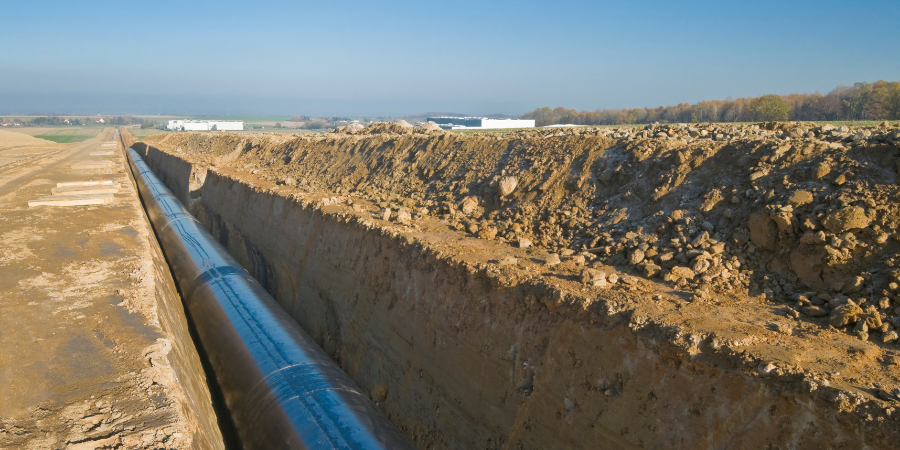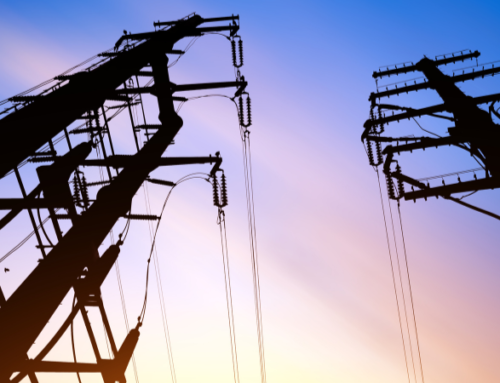Natural gas deregulation has an extensive history in the United States. In fact, wholesale energy markets were first to form in the natural gas sector making the buying, selling and transportation of natural gas more seamless. Read on to learn more about how natural gas first became deregulated and what it might mean to you as a commercial customer in a deregulated energy state.
What Is Natural Gas Deregulation?
Natural gas deregulation is the passage of legislation that broke up natural gas utility companies in order to allow third-party natural gas suppliers to compete. Gas deregulation created both wholesale and retail natural gas markets, which were non-existent in regulated markets where utility companies controlled the entire gas supply chain.
When Did Natural Gas Become Deregulated?
Natural gas first began to be deregulated in 1978 under the Natural Gas Policy Act of 1978. This Act ended federal control over natural gas prices at drilling sites and began a process of customer choice in certain U.S. states. Often in the shadow of the more popular electricity deregulation, natural gas deregulation actually came before power deregulation and there are many more deregulated gas states compared to deregulated electricity states.
And finally, in 1992, FERC passed Order 636, known as “The Final Restructuring Rule”. This called for the complete deregulation of natural gas by separating natural gas supply charges from natural gas delivery charges on a customer’s bill.
Why Was Natural Gas Deregulated?
The federal government helped to facilitate natural gas deregulation by putting price caps on natural gas pipelines in an effort to make natural gas more accessible and affordable for commercial and industrial customers. This allowed for competition to be able to offer affordable gas rates in the market. Eventually by the early 90’s many states and utilities began to adopt deregulated natural gas markets.
Pros And Cons Of Natural Gas Deregulation
There are several pros and cons of natural gas deregulation including lower prices and unscrupulous suppliers, respectively. Let’s explore some of the pros and cons of gas deregulation in more detail below.
Pros Of Natural Gas Deregulation
- Supplier competition and consumer choice
- Flexible rate plans to match customer needs
- Lower prices for consumers
- Consumer access to futures markets and long-term fixed rates
Cons Of Natural Gas Deregulation
- Unscrupulous actors, energy scams, and fraud
- Post-contract high variable rates imposed by suppliers
- Supplier bankruptcy risk and consumer impact
- Energy account slamming or unauthorized account switches
What States Are Deregulated For Gas?
In total, there are 26 U.S. states with deregulated natural gas markets. Here is a list of states that are deregulated for gas in the U.S.:
- California
- Montana
- Wyoming
- Colorado
- New Mexico
- Nebraska
- Kansas
- Iowa
- Illinois
- Indiana
- Michigan
- Kentucky
- Virginia
- West Virginia
- Maryland
- Georgia
- Florida
- Pennsylvania
- Delaware
- New Jersey
- New York
- Connecticut
- Rhode Island
- Massachusetts
- New Hampshire
- Maine
The Biggest Natural Gas Companies
There are many different companies involved in the natural gas sector. From natural gas exploration to drilling to transportation to sales, natural gas companies earn billions of dollars in revenue each year. Here are the top 10 biggest natural gas companies in the world by annual revenue:
1. BP
Annual revenue: $164.19 Billion
Number of employees: 65,900
Headquarters: London, UK
2. EQT
Annual revenue: $3.06 Billion
Number of employees: 693
Headquarters: Pittsburg, Pennsylvania
3. Southwestern Energy Company
Annual revenue: $6.67 Billion
Number of employees: 938
Headquarters: Spring, Texas
4. Antero Resources
Annual revenue: $4.62 Billion
Number of employees: 519
Headquarters: Denver, Colorado
5. Exxon Mobil
Annual revenue: $285.64 Billion
Number of employees: 63,000
Headquarters: Irving, Texas
6. Ascent Resources
Annual revenue: $1.20 Billion
Number of employees: 398
Headquarters: Oklahoma City, Oklahoma
7. Range Resources
Annual revenue: $2.93 Billion
Number of employees: 527
Headquarters: Fort Worth, Texas
8. Chevron
Annual revenue: $162.47 Billion
Number of employees: 42,595
Headquarters: San Ramon, California
9. CNX Resources
Headquarters: Cannonsburg, Pennsylvania
Number of employees: 440
Annual revenue: $756 Million
10. Shell
Annual revenue: $272.66 Billion
Number of employees: 82,000
Headquarters: London, England
Retail Gas Suppliers
While these companies are mostly involved in the exploration and production of natural gas, here are the ten largest retail natural gas suppliers:
- EDF – $84.5 Billion
- ENGIE – $60 Billion
- NRG – $26.99 Billion
- Constellation – $19.6 Billion
- AEP – $17.54 Billion
- NextEra – $17 Billion
- Vistra Energy- $11.4 Billion
- Calpine Energy – $10 Billion
- WGL Energy – $2.66 Billion
- Energy Harbor – $2 Billion
Deregulated Gas Markets In The U.S.
In the United States, deregulated gas markets and regulated gas markets operate on the same wholesale infrastructure of natural gas pipelines and financial markets. Let’s first explore the pipeline network.
U.S. Natural Gas Pipeline Network
There is a vast network of natural gas pipelines throughout the United States. These pipelines are connected to well heads where natural gas is drilled from the ground and carried to utility companies where it is ultimately delivered to customers.
The majority of these pipelines converge in Louisiana in a location known as the Henry Hub. The Henry Hub is the place where the largest volumes of natural gas are delivered for consumption. Because of its high trading volume, the price of natural gas at the Henry Hub sets the price of the financial natural gas market, known as the NYMEX.
There are, however, many other delivery points throughout the country where pipelines send gas. After all, how else would customers in New England, New York, and Colorado get natural gas to heat their homes and power their businesses? Each of these locations has a different delivery price for natural gas that changes with the specific location’s natural gas supply and demand. The difference between the Henry Hub/NYMEX price and each local delivery price is known as the natural gas basis.
Natural gas utility companies also play a large role in the U.S. deregulated gas markets. Let’s explore those next…
Natural Gas Utility Companies
Natural gas utilities historically are regulated companies that deliver gas to customers at the local level. Prior to the deregulation of the natural gas markets, these utilities had a monopoly on the market and were responsible for producing gas, transporting it, and selling/delivering it to the end user.
In deregulated markets, gas utilities are still responsible for the delivery of gas; however, they are only partially responsible for the supply of gas. In deregulated markets, the customer’s gas bill is split into two parts: delivery and supply. If a customer elects to purchase gas from a supplier, then the supply portion of their invoice is billed by the supplier. In any case, the utility company is always responsible for delivering the gas over local gas lines.
Natural Gas Suppliers
Natural gas suppliers operate in deregulated markets by purchasing natural gas from the wholesale market and reselling it to end-user consumers. Natural gas suppliers are sometimes also involved in the exploration and drilling for gas; although many simply buy and sell it. Natural gas providers are required to get licensed in each state where they operate and integrate with gas utilities for billing, and they must demonstrate solid financials in order to be allowed to supply natural gas to customers.
Energy Deregulation Around The Globe
There are several international markets with deregulated utilities. Let’s explore some of the countries that have divided their utility monopolies continent by continent.
North America
Similar to the United States, Canada is also deregulated for energy. Both electricity and natural gas are deregulated in Canada allowing Canadians the option to shop for a competitive energy supplier. With regards to natural gas, the Canadian gas markets have been deregulated since the mid 80s allowing customers in the following provinces to shop for natural gas suppliers:
- Ontario
- British Columbia
- Alberta
Alberta is the only fully deregulated electricity market in Canada.
Europe
In Europe, electricity and natural gas first began deregulating in the late 90s. By the early 2000s, most European countries broke up their utility monopolies allowing energy choice for European consumers and businesses. Most markets in Europe follow a similar model to the U.S. where regulated utilities are responsible for infrastructure and energy delivery, while suppliers are responsible for the sale of energy. All members of the European Union have fully deregulated energy markets with the exception of Hungary and Estonia. Those countries include:
- Austria
- Belgium
- Bulgaria
- Croatia
- Republic of Cyprus
- Czech Republic
- Denmark
- Finland
- France
- Germany
- Greece
- Ireland
- Italy
- Latvia
- Lithuania
- Luxembourg
- Malta
- Netherlands
- Poland
- Portugal
- Romania
- Slovakia
- Slovenia
- Spain
- Sweden
- United Kingdom (UK)
Furthermore, some emerging European countries that are seeking future EU membership have followed suit and deregulated their utilities. Some of those deregulated European countries include:
- Albania
- Bulgaria
- Iceland
- Iceland
- Latvia
- Lithuania
- Macedonia
- Norway
- Romania
- Slovakia
- Slovenia
- Turkey
In more recent years, many European countries have made an effort to consolidate their wholesale energy markets to allow the transfer and trading of energy across borders more seamless. As Europe is a tightly-knit group of countries this consolidation of the wholesale energy supply chain was necessary to make a more efficient energy market.
Australia
In 1998, energy deregulation swept the Australian countryside. Due to its infrastructure and cohesive energy grid, energy deregulation in Australia was turn-key. In fact, Australia is considered to be one of the World’s most efficient and successful energy markets. Today, retail energy suppliers are able to serve customers throughout most of the country operating on a single electric grid. Unlike the U.S. which is broken up into several different grid networks, Australia’s electric transmission network makes energy choice simple.
Asia
Japan is the most recent country to test energy deregulation. In fact, in 2016 Japanese regulators enacted legislation that allows certain commercial customers to shop for a third-party energy supplier. Japan has been slowly rolling out its deregulation policy with the hopes of experiencing the same success as other countries such as the United States and Australia.
Need Help Navigating Natural Gas Deregulation?
In summary, deregulated natural gas presents a real opportunity for businesses looking to cut energy costs by choosing an alternative gas supplier. Our team of gas market experts has decades of experience helping commercial and industrial customers purchase natural gas. If you are looking for help finding the right natural gas supply plan for your business, contact us today.



